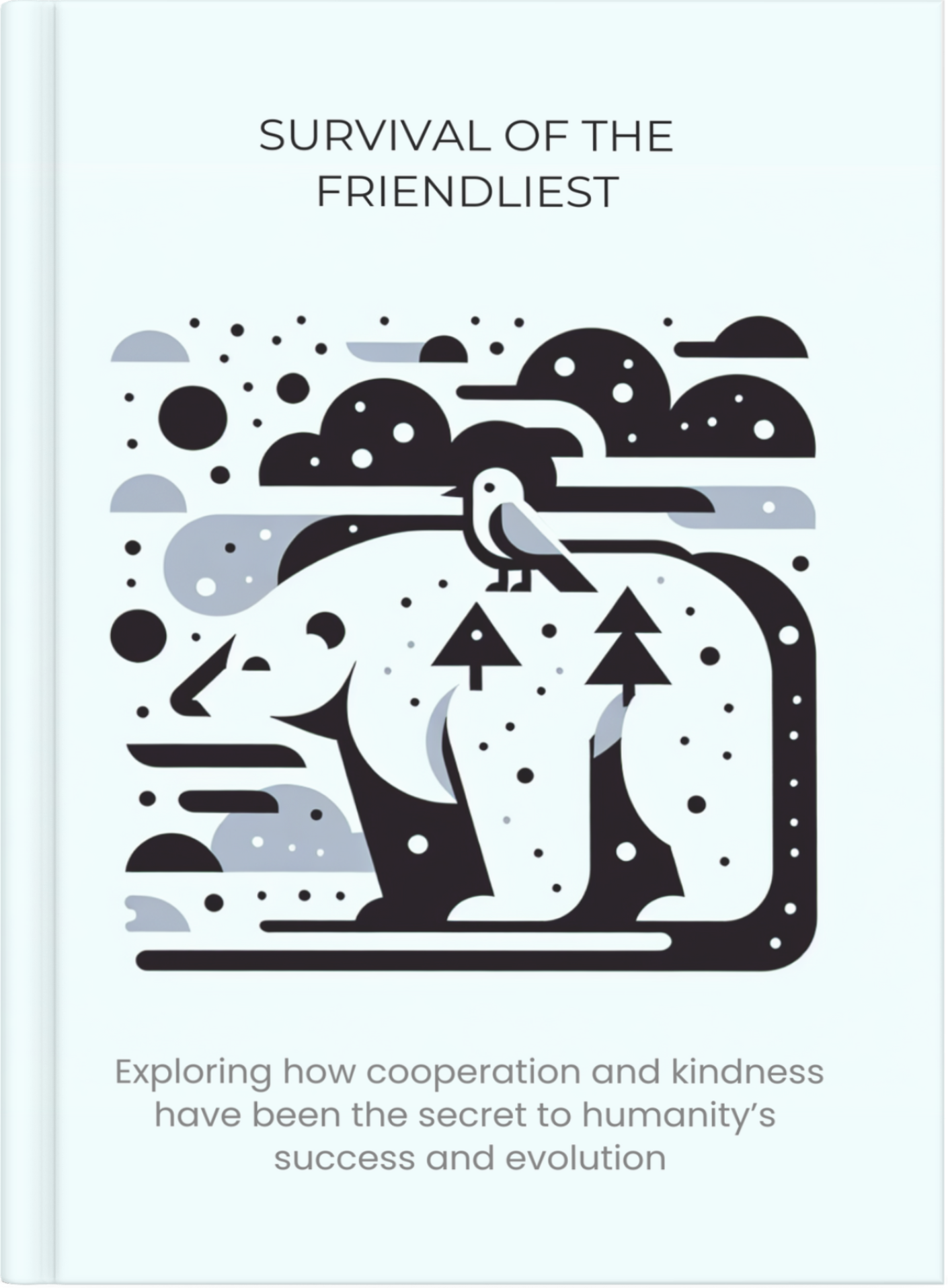
Survival of the Friendliest
Brian Hare and Vanessa Wood
In 'Survival of the Friendliest,' Brian Hare and Vanessa Woods explore the idea that friendliness and cooperation, rather than aggression and competition, have been key drivers in the evolution of species, including humans. The book delves into the science of domestication, the role of social bonds, and how empathy and cooperation have shaped human societies and other species.
0:000:00
Keypoint 1: The Role of Friendliness in Evolution
The concept of 'Survival of the Friendliest' challenges the traditional Darwinian notion of 'Survival of the Fittest.' While natural selection has often been associated with traits like strength, aggression, and competition, recent research suggests that friendliness and cooperation have played a crucial role in the evolution of many species, including humans. This idea posits that the ability to form social bonds and work together has been just as important, if not more so, than the ability to compete and dominate.
One of the key arguments for the role of friendliness in evolution is the process of domestication. Domesticated animals, such as dogs, exhibit traits that are markedly different from their wild ancestors. These traits include reduced aggression, increased sociability, and a greater capacity for forming bonds with humans and other animals. The domestication process has selected for these friendly traits, suggesting that they offer significant survival advantages.
In humans, the ability to form complex social networks and cooperate with others has been a cornerstone of our evolutionary success. Early human societies that were able to work together effectively were more likely to survive and thrive. This cooperation extended to sharing resources, caring for the young and elderly, and protecting the group from external threats. The development of language and other forms of communication further enhanced our ability to cooperate and build social bonds.
Empathy, the ability to understand and share the feelings of others, is another critical aspect of friendliness that has evolutionary benefits. Empathy fosters cooperation and altruism, which can enhance the survival of the group. For example, individuals who are empathetic are more likely to help others in need, creating a supportive social environment that benefits everyone.
The role of friendliness in evolution is not limited to humans. Many other species, such as bonobos and elephants, also exhibit high levels of social bonding and cooperation. These species demonstrate that friendliness can be a successful evolutionary strategy across different environments and ecological niches.
In summary, the role of friendliness in evolution highlights the importance of social bonds, cooperation, and empathy in the survival and success of species. By fostering positive social interactions and reducing aggression, friendliness has enabled both humans and other species to thrive in complex social environments.
One of the key arguments for the role of friendliness in evolution is the process of domestication. Domesticated animals, such as dogs, exhibit traits that are markedly different from their wild ancestors. These traits include reduced aggression, increased sociability, and a greater capacity for forming bonds with humans and other animals. The domestication process has selected for these friendly traits, suggesting that they offer significant survival advantages.
In humans, the ability to form complex social networks and cooperate with others has been a cornerstone of our evolutionary success. Early human societies that were able to work together effectively were more likely to survive and thrive. This cooperation extended to sharing resources, caring for the young and elderly, and protecting the group from external threats. The development of language and other forms of communication further enhanced our ability to cooperate and build social bonds.
Empathy, the ability to understand and share the feelings of others, is another critical aspect of friendliness that has evolutionary benefits. Empathy fosters cooperation and altruism, which can enhance the survival of the group. For example, individuals who are empathetic are more likely to help others in need, creating a supportive social environment that benefits everyone.
The role of friendliness in evolution is not limited to humans. Many other species, such as bonobos and elephants, also exhibit high levels of social bonding and cooperation. These species demonstrate that friendliness can be a successful evolutionary strategy across different environments and ecological niches.
In summary, the role of friendliness in evolution highlights the importance of social bonds, cooperation, and empathy in the survival and success of species. By fostering positive social interactions and reducing aggression, friendliness has enabled both humans and other species to thrive in complex social environments.

